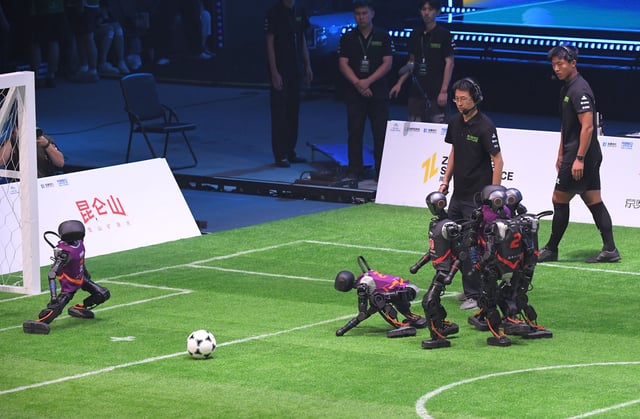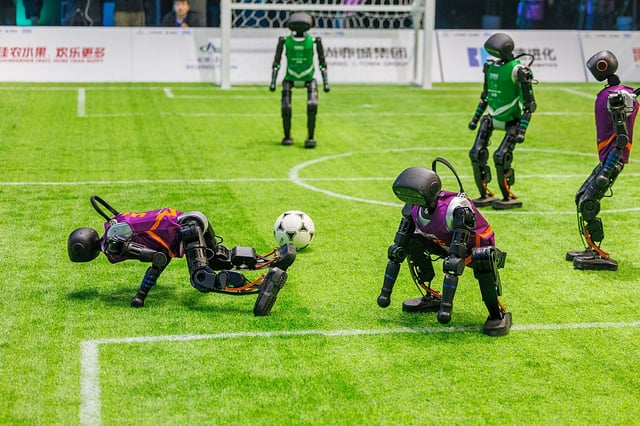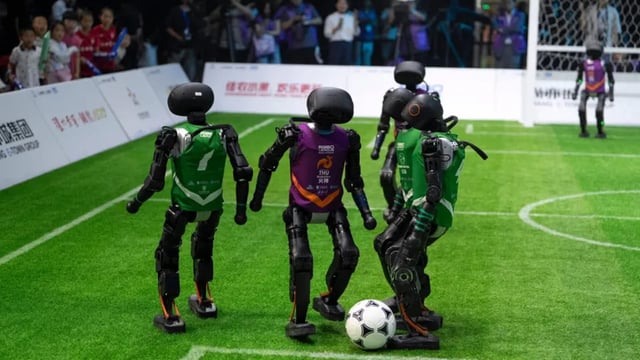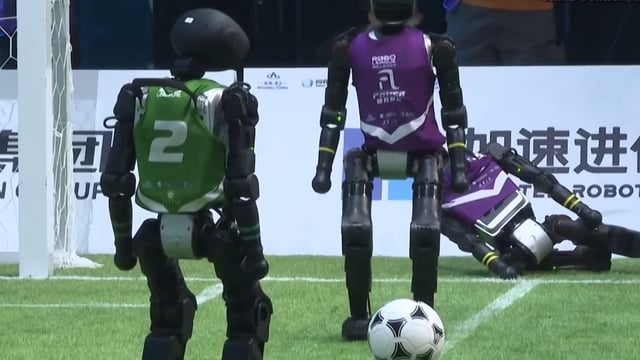Overview
- On June 28 in Beijing, four university teams used Booster Robotics hardware to stage fully autonomous 3-on-3 soccer matches powered entirely by AI.
- Advanced visual sensors enabled ball tracking and agile movement, but robots frequently tipped over and were carried off on stretchers before self-righting on the sidelines.
- Each academic team embedded proprietary algorithms for perception, decision-making, formations and passing strategies to advance embodied intelligence in live competition.
- Observers likened the robots’ coordination to that of 5- to 6-year-old children, highlighting both rapid progress and persistent balance challenges.
- The showcase aligns with China’s $47 billion robotics market strategy, using sports competitions as real-world AI testbeds ahead of December’s World Humanoid Robot Games.



